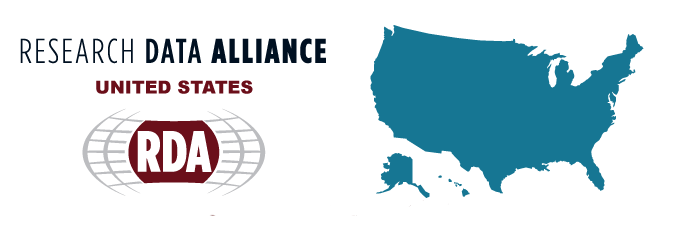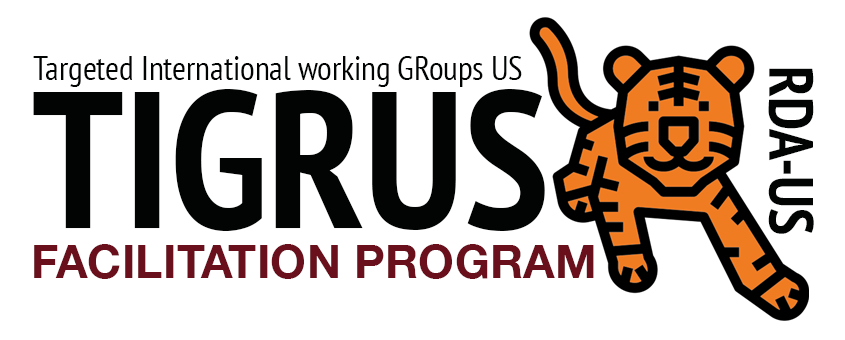The Research Data Alliance’s 22nd Plenary meeting (VP22) took place as a fully virtual event. Organized by the RDA Secretariat, VP22 was held for half-days spread across two weeks, between 14-23 May 2024.
With the theme “Local Action – Global Connection”, which also aligns with the four themes of RDA’s Strategic Plan, the plenary focused on collaboration and engagement with our global community through the sharing of local experiences, best practices and recommendations.
To make VP22 a truly global event, RDA invited Regional RDA Partners (RDA in the Americas, RDA Europe and RDA Oceania) to host plenary sessions and Office Hours to highlight their work. As well as sharing regional updates, the sessions gave attendees the chance to network with experts from their region and discover how they can get involved, identifying synergies across nations and continents.
The RDA-US Program Office collaborated with Digital Research Alliance of Canada / RDA Canada to host the session Engagement in the Americas. This session opened with region updates including ways for RDA members to become involved within their respective region, but also across regions. Drawing on local communities, the session included area experts on topics of mutual interest to both regions. The session closed with open discussion between multiple regions with the goal of identifying synergies that could lead to potential collaborative opportunities.
Speakers included:
- Lee Wilson, Director of Research Data Management, Digital Research Alliance of Canada
- Beth Plale, Executive Director, Research Data Alliance – US
- Fares Dhane, Data analyst, Digital Research Alliance of Canada
- Rob Quick, TIGRUS Program Manager, Research Data Alliance – US (TIGRUS)
- CJ Woodford, Project Manager, Digital Research Alliance of Canada, (Global Open Research Commons (GORC) Working Group in RDA)
- Yolanda Meleco, Research Data Alliance – US
- Robert Ping, Program Manager, Research Data Alliance – US (moderator)
The discussion after presentations included RDA members from many different regions, countries, and institutions:
- Research Software Alliance, Digital Research Alliance of Canada, Canadian Research Data Centre Network (CRDCN), and folks from Ontario, Nova Scotia, Montreal in Canada.
- Indiana University Pervasive Technology Institute, Columbia University, University of Virginia, Washington University in St. Louis, American Geophysical Union, Figshare, George Mason University, Centers for Disease Control (CDC), Massachusetts Institute of Technology, National Institute of Allergy and Infectious Diseases (NIAID), Purdue University, Boston, Global Sustainability Coalition for Open Science Services (SCOSS), California Digital Library (CDL), Center for International Earth Science Information Network – Columbia University (CIESIN) in the United States.
- Attendees from Chili, France, Germany, Belgium, Ireland, Switzerland, Scotland, United Kingdom, Peru, Italy, Greece, and Costa Rica.
RDA-US also participated in a joint session with Research Data Alliance facilitation of Targeted International working Groups for EOSC-related Research solutions (RDA TIGER) to talk about the new Targeted International working Group US (TIGER) facilitation program.
During this joint TIGER/TIGRUS session the EU and US offices presented the TIGER/TIGRUS facilitation services and the value they bring to the RDA community. Invited TIGER-supported working groups (WGs) provided their experiences with TIGER and how it has helped them achieve their goals.
The session included a survey of attendees, presentations by both facilitation programs and the RDA directorate, and a lively question/answer session.
Speakers included:
- Connie Clare, Community Development Manager, Research Data Alliance
- Robert Ping, Program Manager, RDA-US, Indiana University Pervasive Technology Institute
- Ryan O’Connor, Senior Facilitator, RDA TIGER, Research Data Alliance Association AISBL
- Matti Heikkurinen, Research Project Portfolio Manager, Research Data Alliance Association AISBL
- Alexandra Delipalta, Director of Operations, RDA Europe (moderator)
The final session RDA-US hosted was RDA-US Office Hours. Attendees connected with the RDA-US program office to ask questions or learn more about RDA-US initiatives. It opened with a short presentation about RDA-US and the TIGRUS (Targeted International working Groups US) facilitation program and a rousing discussion followed.
In addition to Indiana University, attendees represented Rutgers University, NIST, Massachusetts Institute of Technology, Washington University in St. Louis, Carnegie Mellon, Figshare, IRI – Columbia University, Research Space, UCOP / CDL (UC3), and Stanford.

